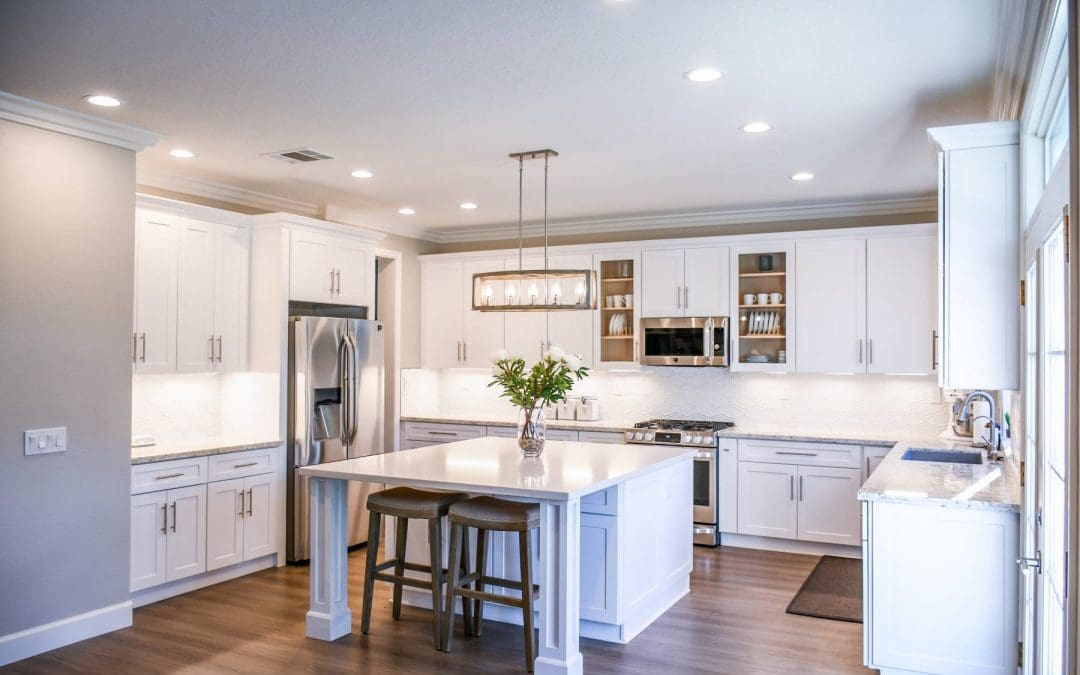Whether you’re an experienced cook or simply preparing meals for your family, kitchen safety is important for everyone. Potential hazards like sharp knives, hot surfaces, slippery floors, and electrical appliances can cause accidents quickly. Fortunately, staying safe in the kitchen doesn’t require complicated steps—just awareness and a few practical habits. Focusing on safety allows you to cook confidently while reducing the risk of injury.
Keep Your Kitchen Clean and Tidy
A messy kitchen is an accident waiting to happen. Cluttered counters and spilled liquids can make you trip or cut yourself. Ensure knives have a safe spot, like a block or magnetic strip, instead of lying around. Clean up spills immediately; wet floors are the most significant cause of falls in the kitchen. When everything has its place, you can work faster and safer without scrambling for tools or ingredients.
Use Knives Carefully
Knives are the most common source of cuts in the kitchen, but most cuts happen because people aren’t paying attention or don’t use the right technique. Always cut away from your body, keep your fingers tucked in, and use a cutting board that won’t slip around. Don’t leave knives soaking in the sink where someone might accidentally grab the blade. When handing a knife to someone else, either place it down safely or hand it over handle-first.
Kitchen Safety: Watch Out for Heat
The stove, oven, and boiling water can cause burns fast if you’re not careful. Always use oven mitts when handling hot pots or pans, and never use a wet cloth—steam burns can be worse than regular burns. Turn pot handles inward so no one accidentally bumps into them. Keep anything flammable, like dish towels or paper towels, away from open flames or hot surfaces. If you have a gas stove, make sure the flame burns blue; that means it’s working safely.
Be Smart With Electrical Appliances
Electric appliances are handy but can be dangerous if you’re not careful. Don’t overload your outlets or plug too many things into one socket. Never touch appliances with wet hands or use them near water. Check cords for damage and don’t yank on them to unplug, grab the plug instead. If you ever see sparks or smell something burning, unplug the appliance immediately and get it fixed or replaced.
Keep Food Safe
Kitchen safety isn’t just about avoiding cuts and burns; it’s also about handling food correctly. Always wash your hands before cooking and after handling raw meat or seafood. Use separate cutting boards for raw meat and veggies to avoid spreading bacteria. Cook food to the right temperature and store leftovers in the fridge quickly. If something smells or looks off, don’t risk it; throw it out.
Keep Kids Safe in the Kitchen
If you have kids, extra care is needed to keep the kitchen safe. Keep knives, scissors, and other sharp tools out of reach. Use stove knob covers, and don’t let kids near hot pots or pans. Teach them the basics—no running, no touching hot things—and always supervise when they’re helping out. A safe kitchen means less stress and fewer potential trips to the emergency room.
Know What to Do If There’s a Fire
Fires can happen, but knowing what to do makes all the difference. Never pour water on a grease fire; that will just spread it. Instead, cover the pan with a metal lid or use baking soda to put out the flames. Keep a fire extinguisher in your kitchen and know how to use it. If the fire gets out of control, get everyone out and call 911 immediately.
FAQs
What’s the most significant cause of kitchen injuries?
Cuts from knives and burns from hot surfaces cause most kitchen accidents. Paying attention and using simple safety habits helps prevent both.
How do I keep my kitchen floor safe?
Clean up spills immediately, use mats with non-slip backing, and wear shoes while cooking.
Can I use electrical appliances near water?
Avoid using them near sinks or with wet hands to prevent shocks.
How often should I replace knives and cutting boards?
Replace knives when they get dull or damaged. If your cutting board has deep grooves that are hard to clean, it’s time for a new one.
What’s the safest way to store knives?
Use a knife block, magnetic strip, or drawer organizer to keep knives secure and easy to grab.
Elite Home Inspections provides inspections, including pre-listing inspections, in Louisville and the surrounding areas of Kentucky. Contact us to schedule our services.

